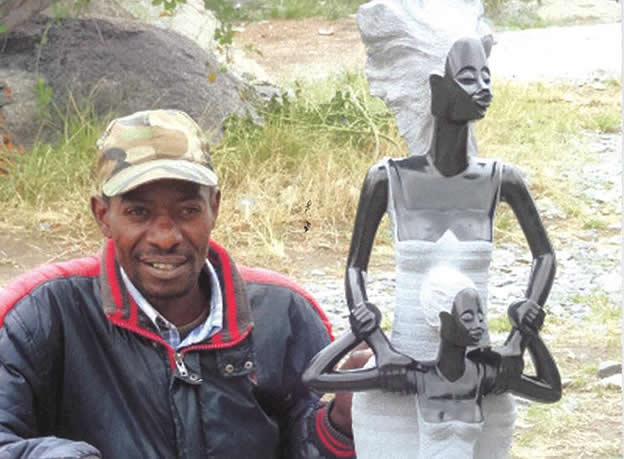Correctional services need overhaul

Tafara Shumba
The unprecedented sad occurrence that swallowed up Chikurubi Maximum prison on Friday the 13th cries out for policy attention. The prison authorities should take a thorough post-mortem and address the cause of that incident.
Beneath the riots that claimed the lives of five inmates and resulted in the injury of many others and prison officers, are some causes that have been incubating for a long time — barring, of course, opportunistic interventions by some elements for their own reasons.
What played out on Friday are just symptoms, which we must not expend time and energy on.
According to media reports, the prison inmates had complained about the poor diet for some weeks. Promises to improve the diet were never fulfilled until the inmates decided to protest riotously. Criminals as they are, the prison officials should have realised that they had the propensity to commit a crime at the slightest opportunity.
A hungry man is an angry man. It is unfortunate that the prison authorities ignored this basic principle. According to impeccable sources, the violent protests followed several other peaceful protests over poor food.
The Chikurubi riot took place just after I had returned from South Africa where l had visited a cousin who is locked up in one of that country’s jail. The two countries’ correctional facilities are two worlds apart.
When l enquired about their diet, my cousin told me that they had the right to protest and boycott meals if they were not served with meat. He went on to brag that they even have hot water for bath and sleep on beds.
Such is a life in a jail of our neighbour.
So many sad stories have been said and written about our prisons. Some of these stories put a dent on the image of the country.
Hopefully it is not true that inmates sometimes eat sadza with royco usavi mix, or six beans each on a lucky day. Apart from food shortages, there are reports that inmates have no access to adequate medical attention.
The anti-Zimbabwe elements have been feasting on the pathetic situation in our correctional facilities.
They liken our jails to deaths camps. To them any jail sentence becomes a death sentence in our prisons, especially Chikurubi. In light of this, our prisons must not continue to be in the limelight for the wrong reasons that can be corrected.
It is a fact that the pathetic conditions in the prisons have roots in the illegal sanctions. However, the prison authorities must think outside the box and devise ways of self-sustenance. According to the Ministry of Justice, Legal and Parliamentary Affairs, the Zimbabwe Prison and Correctional Services (ZPCS) need an annual budget allocation of $21 million to feed inmates. Government has other pressing and competing obligations to meet and it cannot satisfy this budgetary demand.
In light of this, the ZPCS must create its own revenue base. The service has quite a number of farms that are underutilised. The prison inmates must produce their own food on these farms. They can even produce surplus food crops for sale or to feed into the national grain reserves. Unfortunately, not much is being done on the vast farms.
Paradoxically, the personal farms of those who are managing prison farms are flourishing. Hopefully, reports that these officials are looting prison farm equipment are not true. There are also disturbing reports that the inmates provide free labour on the farms of the prison officials. That labour should be hired out at commercial rates.
There is no reason for lack of production on the prison farms. The Reserve Bank of Zimbabwe introduced the farm mechanisation programme, which the prison farms should have been the first priority. Does it mean the managers got their personal farm equipment and forgot to equip state farms?
Vegetables should be grown on these farms. They must venture into serious cattle rearing for milk and beef. They must get into poultry and other projects that bring revenue for the service.
Government took a lead in showing the correct attitude towards the prison system when it changed the name from Zimbabwe Prison Services (ZPS) to ZPCS.
That attitude should reflect in the way our prisons are managed. The prisons must be treated as correctional facilities that should prioritise reformation and rehabilitation of the inmates.
It should be realised that these inmates will have to re-join society as reformed citizens. On the contrary, the harsh conditions in the correctional facilities are hardening inmates into hardcore criminals. This explains why some of them are quick to return to jail after release. For instance, scarcely three months after over 3 000 prisoners were freed under the Presidential Amnesty, 62 of the beneficiaries are already back in jail on fresh criminal charges.
Although these inmates committed crimes, they are still human beings who deserve dignified treatment. After all, everybody is a candidate for these institutions. It is only that we have not yet been caught.
The conditions in our correctional facilities are a travesty of national vision that President Mugabe had when he changed the name of the prison services. Section 50 of our Constitution provides for the protection for the arrested and sentenced prisoners. The supreme law of the country dictates that the condition of imprisonment must be consistent with human dignity, including the opportunity for physical exercise, adequate accommodation, ablution facilities, personal hygiene, nutrition and medical treatment.
Even appropriate reading material must be provided in our correctional facilities and all these provisions must be at the expense of the state. These same jails produced graduates during the colonial period. President Mugabe himself attained some of his degrees in these institutions. He also taught other politicians who also came out of these jails with degrees and diplomas.
However, I am not sure if the present correctional facilities can still produce an educationally empowered citizen. The jails in the independent Zimbabwe must differ from the colonial prisons. There must be a big difference with the Guantamo Bays, Abu Graib and the Lindela Holding camps.
The jail conditions must not be so cruel to the extent that the prisoners see no difference between these conditions and death. They must not be driven into thinking that they would not lose anything by rioting or attempting a jailbreak. If you push someone to a corner, ordinarily the only option is to fight back. The management of our correctional facilities pushes inmates on a corner.
Now, who knows what their next move will be. What will become of the situation in the face of the imminent drought?
The food shortages in our correctional facilities are inimical to the United Nations ‘Standard Minimum Rules (SMR) for treatment of prisoners. The SMR dictates that prisons must be well-organized institutions where there is no danger to life, health or personal integrity.
The Kampala Declaration on Prison Conditions in Africa (1996) and the Ouagadougou Declaration on Accelerating Prison and Penal Reform in Africa (2002) and the Kadoma Declaration on Community Service (1997) further reinforce that need.









Comments